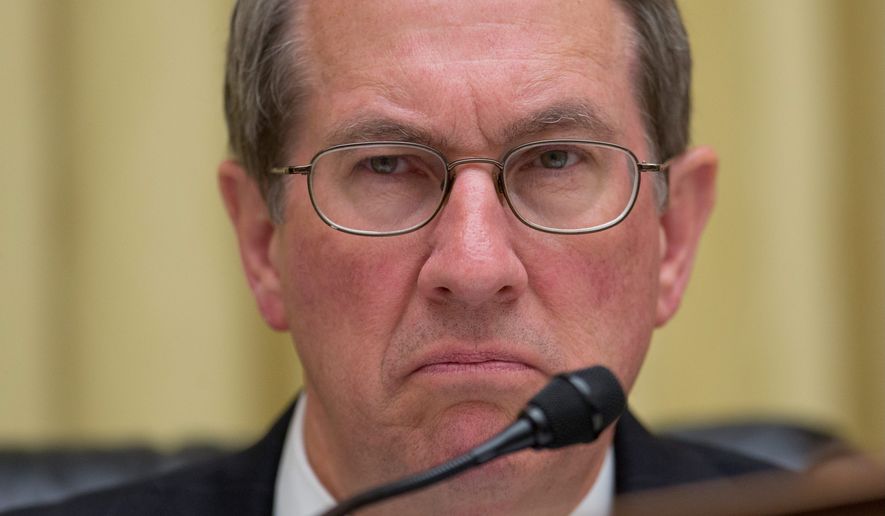The Obama administration told Congress last week that its new deportation amnesty will also allow illegal immigrants to apply for advance parole, which could ease their pathway to eventual citizenship, according to the chairman of the House Judiciary Committee.
Rep. Bob Goodlatte, Virginia Republican, said the admission breaks a promise President Obama made to the country when he announced the program.
In a conference call with congressional staffers, U.S. Citizenship and Immigration Services said it would allow so-called Dreamers applying for the deportation amnesty, known as DACA or Deferred Action for Childhood Arrivals, to also apply for “advance parole,” which is a separate program that offers a potential shortcut to a green card, a key step on the path to citizenship.
In a letter Friday to Homeland Security Secretary Jeh Johnson, Mr. Goodlatte demanded he halt advance parole for those approved for amnesty, saying it could open an avenue for hundreds of thousands of illegal immigrants to bypass the regular rules and gain citizenship, which carries voting rights and eligibility for taxpayer-funded benefits.
“Under the expanded program, DACA requestors will now be able to file applications for advance parole at the same time they file their DACA application,” Mr. Goodlatte wrote. “Such a process encourages advance parole applications and thus encourages DACA to be used as a path to U.S. citizenship.”
A spokeswoman for Mr. Johnson, Ginette Magana, said they’ve always intended for those approved for deferred action would be able to apply for advance parole, saying it is approved “on a case-by-case basis” if the immigrants can show they have a need to travel.
SEE ALSO: Congressional impasse over immigration, homeland security
“That has been the case since 2012 and has not changed,” she said.
She also said advance parole itself doesn’t create a specific path to citizenship.
Advance parole is permission for illegal immigrants to leave the country and return. Under current rules, they can request regular parole upon their return, which eases their path to getting a green card, if they can find someone to sponsor them. Green-card holders are entitled to apply for citizenship after five years.
Current Dreamers who have applied for advance parole had an approval rate of 88 percent, which suggests a large number of the hundreds of thousands of illegal immigrants eligible for the new program will likely also be put on a path to citizenship.
Mr. Goodlatte said immigration lawyers are already well aware of the advance parole citizenship pathway loophole, as judging by their online notices advertising their ability to help illegal immigrants apply.
Mr. Obama announced the program for Dreamers in June 2012, and began taking applications in August of that year. More than 600,000 persons who were brought to the U.S. as children have been approved.
SEE ALSO: Obama: Democrats can sustain veto in immigration battle
In November, the president announced he would expand the program to lift age limits, and create a new program for illegal immigrant parents whose children are already U.S. citizens or legal permanent residents. That program could apply to as many as 3.85 million illegal immigrants, the administration says — though it says only about half of those will be apply.
It is unclear whether the adults would also be given an immediate chance to apply for advance parole.
Mr. Obama took unilateral action to announce the programs, drawing the ire of congressional Republicans who said he overstepped his powers and only Congress can set immigration policy.
The president rejected that, saying while he could halt most deportations by setting priorities, he could not create a pathway to citizenship. Mr. Goodlatte, in his new letter, said the administration appears to have found a way to do that.
USCIS will begin taking applications for the new deportation amnesties for Dreamers and advance parole on Feb. 18.
Congressional Republicans are currently fighting to try to halt the expanded amnesties, and a federal judge in Texas is considering a lawsuit by more than two dozen states who have sued to stop the new policy. A ruling on that case is expected imminently.
• Stephen Dinan can be reached at sdinan@washingtontimes.com.




Please read our comment policy before commenting.